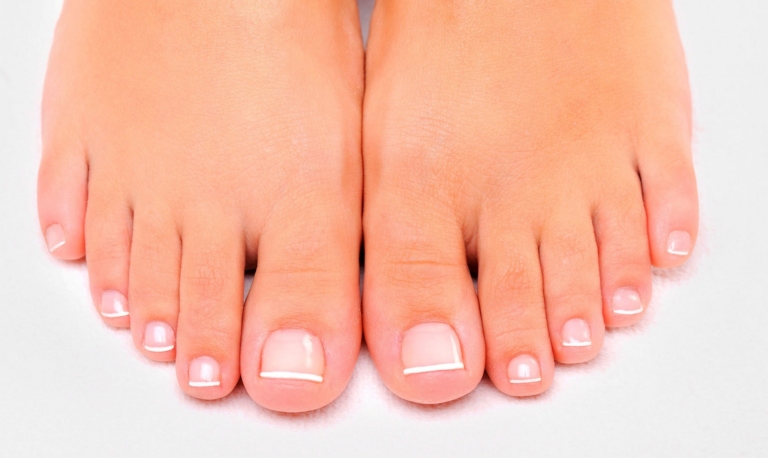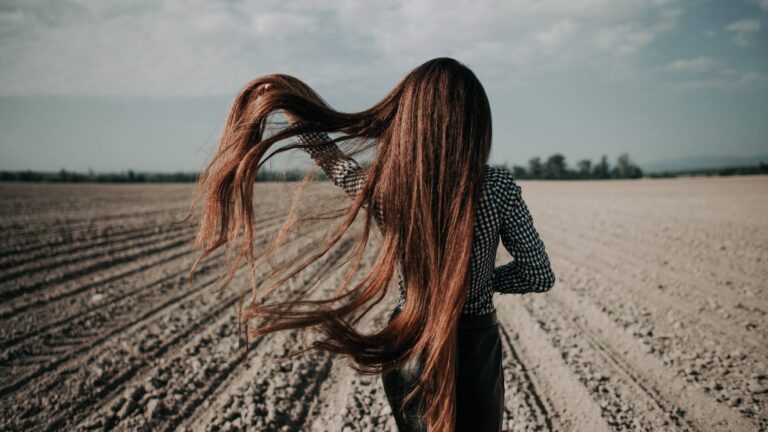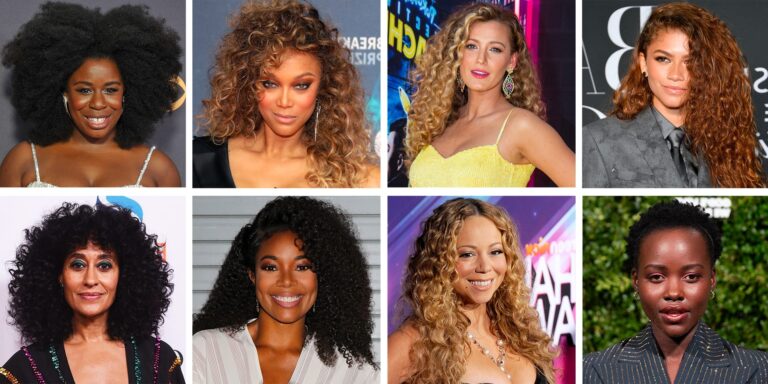Why is my head itchy all the time?
Constant itching of the scalp can be both uncomfortable and frustrating. They can be caused by a variety of factors, and it’s important to understand the potential causes of this itching so you can treat it effectively. In this article, we’ll take a look at the main reasons why you might experience itchy scalp to better understand this common problem.
Some of the common causes of itchy scalp include dandruff, underlying medical conditions, sensitivity or allergy to hair products, skin conditions such as eczema, dry climate, stress and anxiety, excessive sweating, lice or parasite infestation, as well as poor hygiene. Understanding these factors can help you target the specific cause of your itching and take the appropriate steps to treat it.
In the rest of this article, we’ll explore in detail the different causes and possible treatments for itchy scalp. We’ll also look at the hygiene measures you can take to relieve itching and prevent it from recurring in the future. If your itching persists despite these self-care measures, we recommend that you consult a doctor for an accurate diagnosis and appropriate treatment.
Dandruff and itchy scalp
Dandruff and itchy scalp can be a nuisance.
- Here are some important facts to consider:
1. Dandruff is caused by excessive production of dead scalp cells. Itching can result from the irritation caused by these cells.
2. Using an anti-dandruff shampoo can help reduce dandruff and itching. Look for products containing ingredients such as zinc pyrithione or ketoconazole.
3. Avoid scratching your scalp, as this can aggravate itching and even lead to infections.
4. Be sure to rinse your hair thoroughly after using anti-dandruff shampoo to remove any residue.
5. If dandruff and itching persist despite the use of anti-dandruff shampoos, consult a dermatologist for more specific treatment.
6. Keep your scalp clean and moisturized by using products adapted to your hair type.
7. Avoid excessive use of chemical hair products, as they can aggravate scalp problems.
8. A balanced diet and good hydration can also contribute to scalp health.
9. Be aware of seasonal changes, as they can affect the health of your hair and scalp.
10. Try to minimize stress, as it can aggravate scalp symptoms.
By following these tips, you can reduce dandruff and itchy scalp, improving the overall health of your hair.
Underlying medical conditions
Itchy scalp can be caused by underlying medical conditions. Examples of such conditions include fungal infections such as ringworm of the scalp, which can cause itching and irritation.
Psoriasis, a skin disease, can also affect the scalp, causing severe itching. Seborrheic dermatitis, a chronic condition, can cause itching, redness and dandruff. Autoimmune diseases such as lupus can also cause itchy scalps. In addition, allergies to hair products or certain ingredients can cause itching.
Finally, hormonal fluctuations can also affect scalp health and cause itching. It’s important to consult a doctor if you suffer from persistent itchy scalp to identify the underlying cause and receive appropriate treatment.
Sensitivity or allergy to hair care products
Sensitivity or allergy to hair products is an important factor to consider when choosing hair care products. It is possible to develop allergic reactions to certain ingredients present in hair care products, such as dyes, fragrances, preservatives and foaming agents.
Symptoms of sensitivity orallergy can include itching, rashes, redness and scalp irritation. It’s essential to read product labels carefully and avoid those containing ingredients to which you are allergic.
If you are already aware of your sensitivity, or have had an allergic reaction in the past, it is advisable to consult a dermatologist, who will be able to recommend products suitable for your sensitive scalp. It’s also advisable to carry out a patch test before using a new product to prevent any adverse reactions.
By taking into account your sensitivity or allergy to hair products, you can choose products that meet your needs and avoid itching and scalp irritation.
Skin problems such as eczema
Skin problems such aseczema can lead to itchy scalps. The scalp can become red, irritated and dry as a result of eczema. Good hygiene is important to relieve itching. Use mild, hypoallergenic hair care products to avoid allergic reactions. Avoid products containing harsh ingredients such as sulfates and perfumes.
It is advisable to consult a dermatologist for an accurate diagnosis and appropriate treatment. The dermatologist may prescribe topical creams or medications to relieve itching and reduce inflammation. It’s also important to take additional hygiene measures, such as avoiding scratching the scalp, keeping hair clean and well moisturized, and reducing stress. Choose gentle products without harsh chemicals and moisturize your scalp regularly.
Dry climate
Dry climates can frequently cause itchy scalps. A medical condition called seborrheic dermatitis can be aggravated by dry climates. The scalp can become dry and irritated due to low humidity in the air. Dry air can also dehydrate the skin, making itching worse.
To relieve itching caused by dry climates, it’s important to regularly moisturize the scalp and hair. Use a moisturizing shampoo and conditioner to keep the scalp hydrated. Avoid using hair products containing drying ingredients such as alcohol. In a dry climate, it’s also advisable to limit the use of heating appliances such as hair dryers, as they can further dry out the scalp.
Don’t forget that internal hydration is just as important. Make sure you drink enough water every day to maintain adequate hydration. By caring for your scalp in a dry climate, you can reduce itching and improve scalp comfort.
Stress and anxiety
Stress and anxiety can have a significant impact on the scalp and cause itching. When we’re stressed, our bodies release hormones that can upset the natural balance of our skin, including the scalp.
Chronic stress can lead to increased sebum production, which can clog hair follicles and cause itching. In addition, compulsive scratching of the scalp due to stress can lead to irritation and redness.
To manage stress and anxiety, it’s important to find stress management techniques that work for you. This can include the practice of meditation, yoga, regular exercise or therapy. It’s also helpful to establish a regular sleep routine and take time to relax and unwind.
It’s important to note that itchy scalp due to stress is not usually a serious medical problem. However, if itching persists or worsens, we recommend consulting a doctor to identify any underlying conditions.
Excessive sweating
Excessive perspiration can contribute to itchy scalps. It is important to consider the following factors to reduce excessive sweating and relieve itching:
– Heat andhumidity: in a hot, humid environment, the scalp can sweat excessively, leading to itching. To cope with this situation, it’s crucial to keep hair clean and dry.
– Intense physical activity: during exercise or any other intense physical activity, the scalp can sweat, causing itching. To reduce perspiration, we recommend wearing a sweatband.
– Overactive sweat glands: some people may have overactive sweat glands, leading to excessive sweating of the scalp and consequent itching. It is advisable to consult a doctor to diagnose and treat the underlying problem.
– Allergic reaction: some people may develop allergic reactions to the hair care products they use, which can lead to increased sweating and itching of the scalp. It is therefore important to use hypoallergenic products and to test them before using new products.
– Poor hygiene: poor hygiene can lead to the build-up of sebum and dirt on the scalp, clogging hair follicles and causing excessive sweating and itching. So it’s essential to wash hair regularly and keep the scalp clean.
By taking these factors into account, you can find solutions to reduce excessive perspiration and relieve itchy scalp. If itching persists or worsens, we recommend you consult a doctor.
Lice or parasite infestation
- Infestation with lice or parasites can cause itchy scalps.
- Lice are small insects that feed on the blood of the human scalp, causing intense itching.
- Parasites such as mites can also infest the scalp and cause itching.
- Infestation by lice or parasites generally occurs through direct contact with an infested person or object.
- Children are often more susceptible to head lice because of their frequent proximity to other children.
- It’s important to treat a lice or parasite infestation quickly to prevent it spreading to other people.
- Treatments available for lice infestation include the use of special shampoos, lice combs and manual methods to eliminate lice and nits.
- It is also advisable to wash and dry all clothing, bedding and objects that have been in contact with the infested person at high temperatures.
- To prevent infestation by lice or parasites, it’s important to avoid contact with infested people, and not to share brushes, combs or hats.
- Good personal hygiene, such as regular hair washing, can also help prevent infestation.
Poor hygiene
To avoid itchy scalps caused by poor hygiene, here is a list of factors to consider:
- Not washing your hair regularly can cause itching due to the build-up of oil, dirt and hair products.
- Using dirty hair tools, such as uncleaned brushes or combs, can also contribute to itching.
- Insufficient rinsing of hair products, such as shampoo or conditioner, can leave residues on the scalp, leading to itching.
- Excessive use of hair products such as gels, lacquers or mousse can also cause itching.
- Not washing your hair after exercising or sweating can encourage the growth of bacteria on the scalp, leading to itching.
- Wearing dirty hats or caps can also aggravate itching problems.
Dermatological consultation
A dermatological consultation is essential if you have persistent scalp itching. Here are the reasons to consult a dermatologist:
– Underlying medical concerns: Persistent itchy scalp may be a symptom of an underlying medical condition such as psoriasis or a fungal infection. A dermatologist can assess your situation and recommend appropriate treatment.
– Precise diagnosis: A dermatologist is an expert in diagnosing skin problems. A consultation with a dermatologist will provide an accurate diagnosis of the cause of your itchy scalp.
– Advanced treatment options: Dermatologists have access to a variety of advanced treatments for itchy scalp, such as specialized shampoos, lotions and topical medications. They can recommend the most effective treatment for your specific situation.
– Hair hygiene advice: A dermatologist can provide practical advice on appropriate hair care to prevent itchy scalp. This may include recommendations on hair products to use, frequency of hair washing and other hygiene measures.
Tip: Don’t wait until itchy scalp becomes unbearable before consulting a dermatologist. Early consultation can help you achieve rapid relief and prevent possible complications.
How can I treat itchy scalp?
- Identify underlying causes: Before starting treatment, identify the possible causes of itchy scalp. These may include medical conditions, sensitivities to hair products, skin problems such as eczema, dry climate, stress and anxiety, excessive sweating, lice or parasite infestation, or poor hygiene.
- Consult a dermatologist: If itching persists or worsens, consult a dermatologist. A professional will be able to assess your scalp and prescribe the appropriate treatment.
- Use available treatments: Treatments for itchy scalp vary depending on the underlying cause. This can include the use of special shampoos, topical creams, antihistamines, or treatments for specific skin problems such as eczema.
- Follow hygiene measures: Relieve itchy scalp by adopting appropriate hygiene measures. This can include regular hair washing, using a mild shampoo without harsh chemicals, avoiding irritating hair products, and maintaining a clean, moisturized scalp.
Did you know that stress and anxiety can also cause itchy scalps? Take care of your mental well-being to maintain a healthy, itch-free scalp.
What are the most common causes of itchy scalp?
Itchy scalp can be caused by a variety of factors. Here are the most common causes of itchy scalp:
1. Underlying diseases: certain medical conditions, such as psoriasis or seborrheic dermatitis, can cause itchy scalps.
2. Sensitivity or allergy to hair care products: some hair care products, such as shampoos or colorants, can irritate the scalp and cause itching.
3. Skin problems such as eczema: eczema can cause intense itching of the scalp, accompanied by redness and irritation.
4. Dry climate: in winter or in very dry environments, the skin of the scalp can become dry, causing itching.
5. Stress and anxiety: stress and anxiety can aggravate itchy scalps, as they can affect the overall health of the skin.
6. Excessive perspiration: excessive perspiration of the scalp can cause itching, especially if not washed off immediately.
7. Lice or parasite infestation: lice or other scalp parasites can cause intense itching and require specific treatment.
8. Poor hygiene: poor hygiene, such as not washing hair and scalp regularly, can lead to itching and irritation.
If you experience persistent itching of the scalp, it is advisable to consult a doctor for an accurate diagnosis and appropriate treatment.
How can I prevent itchy scalp?
To prevent itchy scalp, follow these simple steps:
1. Keep your hair and scalp clean by washing regularly with a mild shampoo suited to your hair type.
2. Avoid scratching or rubbing your scalp excessively as this can cause irritation and itching.
3. Be aware of the hair products you use and avoid those containing harsh or irritating ingredients. Instead, opt for natural, gentle products.
4. Avoid excessive heat sources such as straightening plates or hot hair dryers, as these can dry out your scalp.
5. Be sure to rinse your hair thoroughly after each wash to remove any shampoo or hair product residue.
6. Moisturize your scalp by using a conditioner or moisturizing mask after each wash.
7. Protect your scalp by wearing a hat or using sunscreen to avoid sun damage.
8. Avoid stress and anxiety, which can make scalp itching worse. Find ways to relax and manage stress.
9. If you have lice or parasitic infestations, treat them immediately to avoid itching and irritation.
10. If itching persists despite these preventive measures, consult a doctor or dermatologist for an accurate diagnosis and appropriate treatment.
Taking care of your scalp is important to prevent itching and maintain healthy hair. Simple measures like those mentioned above can help you prevent itchy scalp and feel comfortable all day long.
Did you know that the scalp contains around 100,000 hair follicles? This is where hair grows from deep roots in the scalp skin.
When should you see a doctor?
When you experience persistent itching of the scalp, it is advisable to consult a doctor. When should you see a doctor? Itching may be a sign of a more serious underlying problem that requires medical attention. If the itching doesn’t go away after using hair products or home remedies, it’s advisable to make an appointment with a doctor.
It’s also important to consult a doctor if you have other symptoms associated with itchy scalp, such as redness, scaly patches or bleeding. These symptoms may indicate more serious skin problems, such as eczema or a fungal infection, which require medical treatment.
What’s more, if you have a history of skin problems or an underlying medical condition, it’s best to consult a doctor for an accurate diagnosis and appropriate treatment.
If you’re not sure what’s causing your itchy scalp, or if the itching is affecting your daily quality of life, it’s always best to consult a doctor. They’ll be able to assess your condition, run tests if necessary and recommend the best treatment to relieve your itchy scalp. Pay attention to your body and don’t hesitate to seek professional medical advice whenever necessary.
What treatments are available for itchy scalp?
Treatments available for itchy scalp include:
1. Use of specialized shampoos: Specialized shampoos are formulated to relieve itchy scalp. These shampoos contain soothing ingredients such as zinc, colloidal oatmeal or menthol, which help to calm itching.
2. Moisturize the scalp: It’s important to keep the scalp moisturized to prevent itching. You can use moisturizing products such as hair oils or specific creams to soothe and moisturize the scalp.
3. Treat underlying conditions: If itchy scalp is caused by an underlying medical condition such as eczema, psoriasis or a fungal infection, it’s important to treat that specific condition. Consult a dermatologist, who will be able to prescribe suitable medication or treatments.
4. Avoid irritating products: Some hair products, such as hair dyes or harsh styling products, can cause itchy scalps. Try to avoid using these products or opt for gentler, natural alternatives.
5. Avoid triggers: Identify the factors that trigger your itchy scalp, such as stress, food allergies or environmental changes, and try to avoid them as much as possible.
It’s important to note that if itching persists despite the use of these treatments, or if it worsens, it’s advisable to consult a physician. A dermatologist can assess your specific situation and prescribe the appropriate treatments to relieve itchy scalp.
What hygiene measures can be taken to relieve itching?
To relieve itchy scalp, you can follow these hygiene measures:
- Wash your hair regularly with a mild shampoo specially designed for sensitive or irritated scalps.
- Avoid excessive use of hair care products such as gels, lacquers and mousse.
- Opt for fragrance-free or hypoallergenic styling products to prevent allergic reactions.
- Avoid scratching or rubbing your scalp vigorously, as this can aggravate itching.
- Pay particular attention to the hygiene of your hair and scalp, keeping them clean and well cared for.
- Wash your hair at lukewarm rather than hot temperatures.
- Make sure your scalp is well ventilated by avoiding tight-fitting hats or caps.
- Pay attention to your stress and anxiety levels, as these can aggravate itchy scalps.
- Don’t hesitate to consult a dermatologist if itching persists or worsens, as this could be a sign of an underlying medical condition requiring specific treatment.
Frequently asked questions
Why is my head itchy all the time?
The origin of the problem may be due to a variety of factors, including organic, irritative or psychological causes.
What are the organic causes of itchy scalp?
Organic causes can include internal diseases such as diabetes or thyroid problems, as well as dermatological conditions such as psoriasis.
What shampoos are recommended to relieve itchy scalps?
We recommend using mild or pH-neutral shampoos, and avoiding aggressive or unsuitable shampoos.
Is there a link between itchy scalp and hair loss?
Itchy scalp is not always linked to hair loss, but it’s important to consult a dermatologist if symptoms persist.
How can scalp flaking be treated?
Scaling can be caused by conditions such as seborrheic dermatitis or psoriasis. Topical or systemic medications may be prescribed by a physician to treat this problem.
How can I prevent itchy scalp?
We recommend avoiding aggressive hair products, avoiding excessive scratching, and adopting a skincare routine adapted to your scalp type.
When should I consult a dermatologist for persistent itchy scalp?
If over-the-counter treatments don’t relieve the itch, it’s advisable to consult a dermatologist for a thorough examination and accurate diagnosis.
“One of my biggest dreams is that my company will be able to change the course of one family’s life, one child at a time by giving back to the community.”







